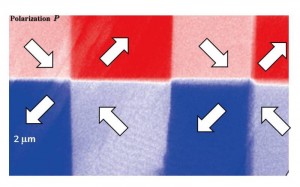Discovery of ferroelectricity and antiferroelectricity in imidazoles Opening a new avenue to next-generation ferroelectric materials

Dr. Sachio Horiuchi at the National Institute of Advanced Industrial Science and Technology has discovered that many imidazole crystals exhibit ferroelectricity and antiferroelectricity even at room temperature, in collaboration with Lecturer Fumitaka Kagawa and Master’s program student Kensuke Hatahara (University of Tokyo Graduate School of Engineering), Professor Yoshinori Tokura (University of Tokyo Graduate School of Engineering and RIKEN Group Director), and Dr. Kensuke Kobayashi, Prof. Reiji Kumai, and Prof. Youichi Murakami from the Institute of Materials Structure Science at KEK. Through dielectric measurements, they demonstrated reversible switching of ferroelectric polarization at room temperature. Moreover, by exploiting the rich possibilities for chemical modulation, they succeeded in synthesizing a variety of molecular assemblies and in aligning the ferroelectric polarization uniformly. Given that imidazole is a well-known molecule often found in biomaterials such as histamine and vitamin B12, is chemically stable, highly soluble and commercially available, the discovery of imidazole-based organic ferroelectrics is expected to open a new avenue of research into next-generation organic ferroelectrics.
Press release (JST website)
Paper
Sachio Horiuchi, Fumitaka Kagawa, Kensuke Hatahara, Kensuke Kobayashi, Reiji Kumai, Youichi Murakami and Yoshinori Tokura,
“Above-room-temperature ferroelectricity and antiferroelectricity in benzimidazoles”,
Nature Communications 3 Online Edition: 2012/12/18, doi:10.1038/ncomms2322.
Article link







